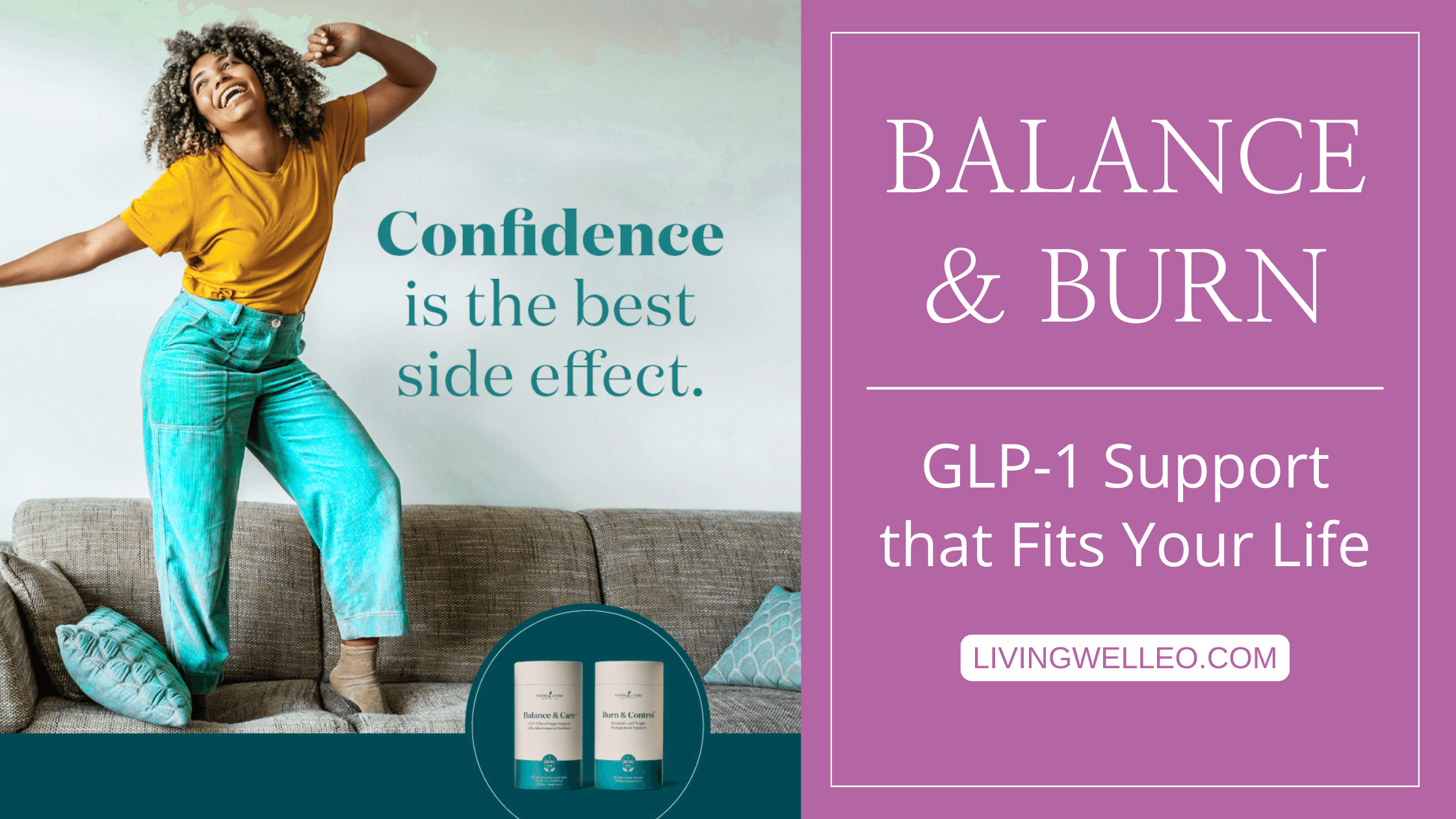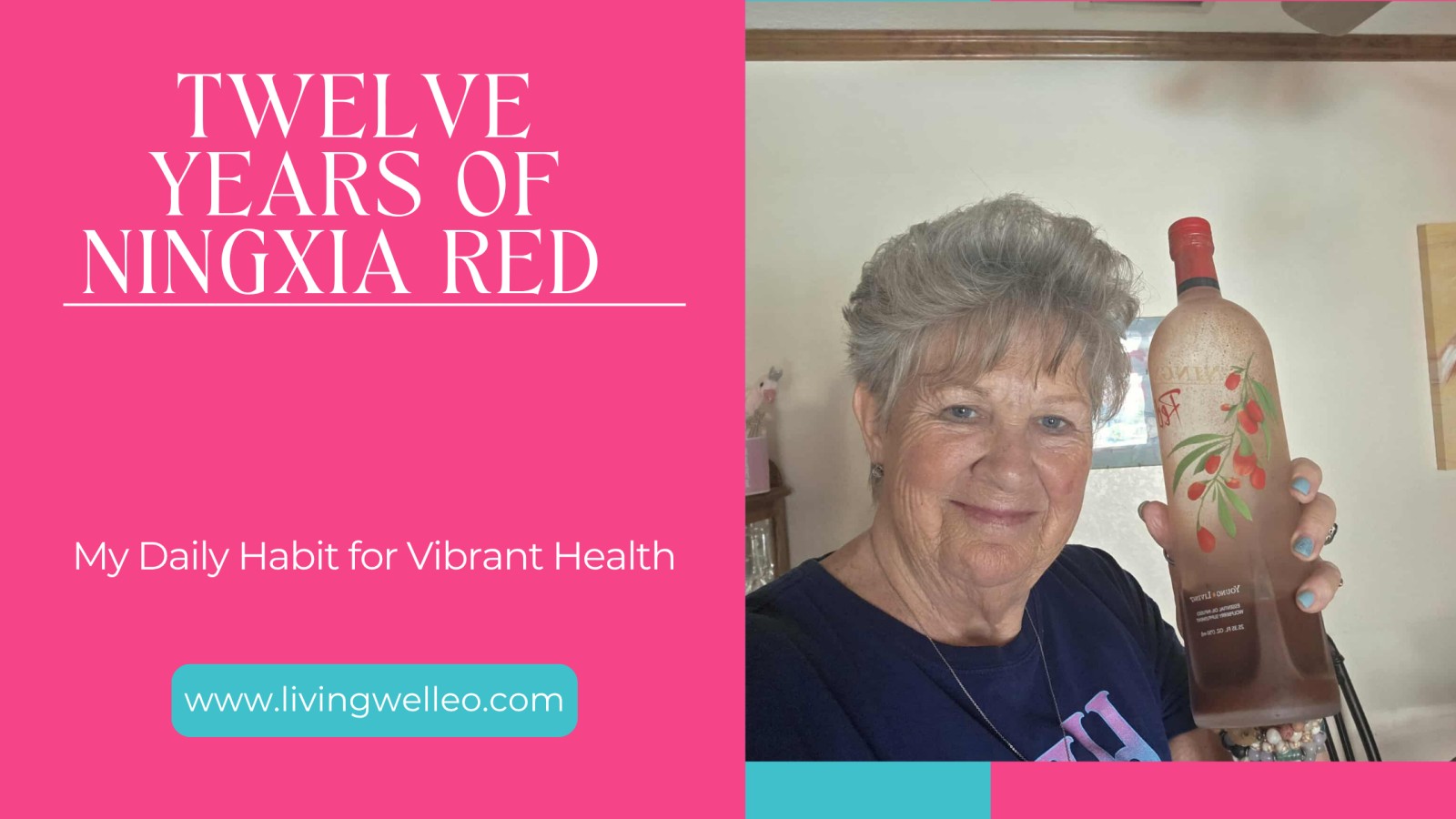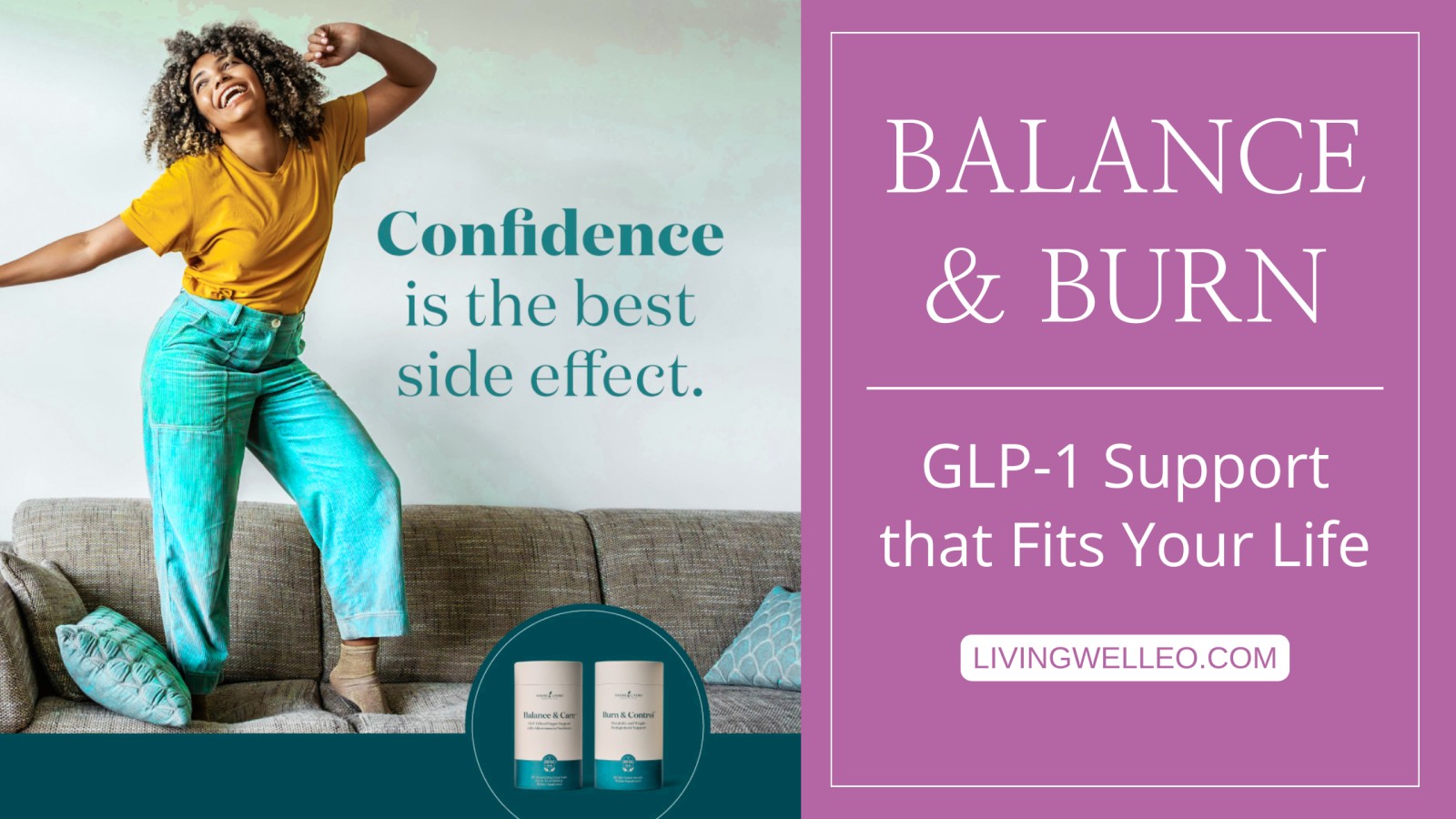 Discover the transformative potential of naturally supporting GLP-1 with Young Living's innovative Balance & Burn system. As the wellness world buzzes about GLP-1's role in appetite control, metabolism, and more, this blog post delves into how you can enhance your body's natural GLP-1 production rather than override it. Embrace a supportive approach that nurtures gut signaling and metabolic flexibility without relying on stimulants or harsh suppressants. Learn how integrating Balance & Burn with simple daily habits like a protein-rich diet, staying hydrated, and reducing stress can foster long-term wellness. Ready to understand the powerful connection between this system and your body’s natural rhythm? Read on to explore how Balance & Burn fits seamlessly into a holistic, health-focused lifestyle.
Discover the transformative potential of naturally supporting GLP-1 with Young Living's innovative Balance & Burn system. As the wellness world buzzes about GLP-1's role in appetite control, metabolism, and more, this blog post delves into how you can enhance your body's natural GLP-1 production rather than override it. Embrace a supportive approach that nurtures gut signaling and metabolic flexibility without relying on stimulants or harsh suppressants. Learn how integrating Balance & Burn with simple daily habits like a protein-rich diet, staying hydrated, and reducing stress can foster long-term wellness. Ready to understand the powerful connection between this system and your body’s natural rhythm? Read on to explore how Balance & Burn fits seamlessly into a holistic, health-focused lifestyle.
Discover the transformative power of a simple daily habit that has become a cornerstone of lasting wellness with Young Living's NingXia Red. Packed with nutrient-rich ingredients like wolfberries and antioxidants, this vibrant drink offers essential support for your body's natural vitality from the inside out. Imagine experiencing remarkable energy and health benefits through consistent use, as part of a holistic lifestyle that includes clean nutrition and mindful living. While it's one piece of a bigger puzzle, its daily presence can remind you of the profound impact small choices make on your overall well-being. Dive deeper into this inspiring story and uncover how you too can embrace such a ritual for your own journey to thrive.
Read more... Discover the rejuvenating benefits of PEMF (Pulsed Electromagnetic Field) and Terahertz Wave sessions, designed to recharge your body's energy and alleviate various discomforts. PEMF acts as a "battery charger" for your cells, enhancing circulation and reducing inflammation, ultimately supporting your body's natural healing processes against the depletion caused by stress, toxins, and aging.
Discover the rejuvenating benefits of PEMF (Pulsed Electromagnetic Field) and Terahertz Wave sessions, designed to recharge your body's energy and alleviate various discomforts. PEMF acts as a "battery charger" for your cells, enhancing circulation and reducing inflammation, ultimately supporting your body's natural healing processes against the depletion caused by stress, toxins, and aging. In the face of a challenging illness, I discovered a path to healing that intertwined faith and the restorative power of essential oils. Drawing from the rich history of biblical oils, I found that these sacred gifts have been used for centuries in worship, healing, and everyday life, serving as a divine provision for wellness. Through prayer and exploration, I encountered oils like Frankincense, Myrrh, and Cedarwood, which were profoundly impactful on my journey, enhancing spiritual connection, emotional grounding, and physical well-being.
In the face of a challenging illness, I discovered a path to healing that intertwined faith and the restorative power of essential oils. Drawing from the rich history of biblical oils, I found that these sacred gifts have been used for centuries in worship, healing, and everyday life, serving as a divine provision for wellness. Through prayer and exploration, I encountered oils like Frankincense, Myrrh, and Cedarwood, which were profoundly impactful on my journey, enhancing spiritual connection, emotional grounding, and physical well-being. In life, it's often the smallest changes that can lead to the most profound transformations. I learned this lesson firsthand after my diagnosis of triple negative breast cancer in 2015—a moment that reshaped my entire outlook on health and wellbeing. What once felt like ordinary, everyday choices suddenly carried new weight. I realized that if I wanted to give my body the best chance at healing, I had to start paying attention to even the tiniest details.
In life, it's often the smallest changes that can lead to the most profound transformations. I learned this lesson firsthand after my diagnosis of triple negative breast cancer in 2015—a moment that reshaped my entire outlook on health and wellbeing. What once felt like ordinary, everyday choices suddenly carried new weight. I realized that if I wanted to give my body the best chance at healing, I had to start paying attention to even the tiniest details. 











